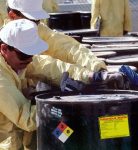Getting to Zero: Practical Strategies for Meeting Zero-Incident Goals Through Successful Process Indicators
By John J. Meola John J. Meola, CSP, safety director for Pillar Engineers in Richmond, Virginia, provides insight into the process and challenges involved in striving for zero-incident goals in a preview of his upcoming webinar on November 17.










